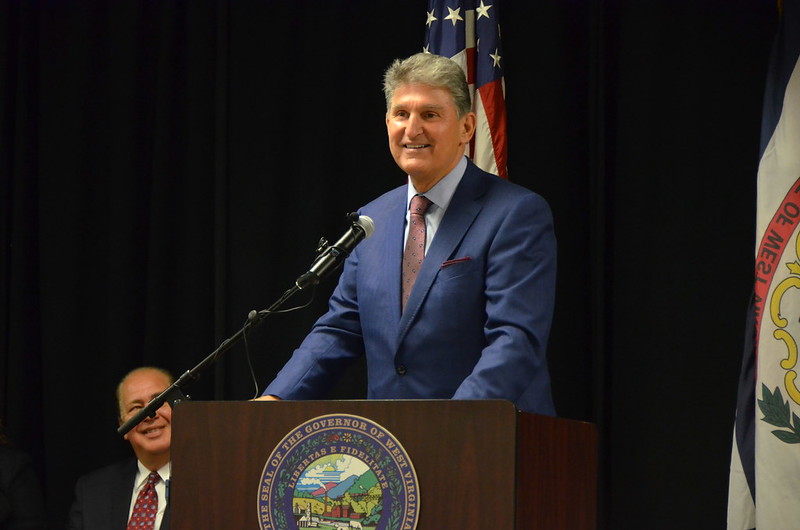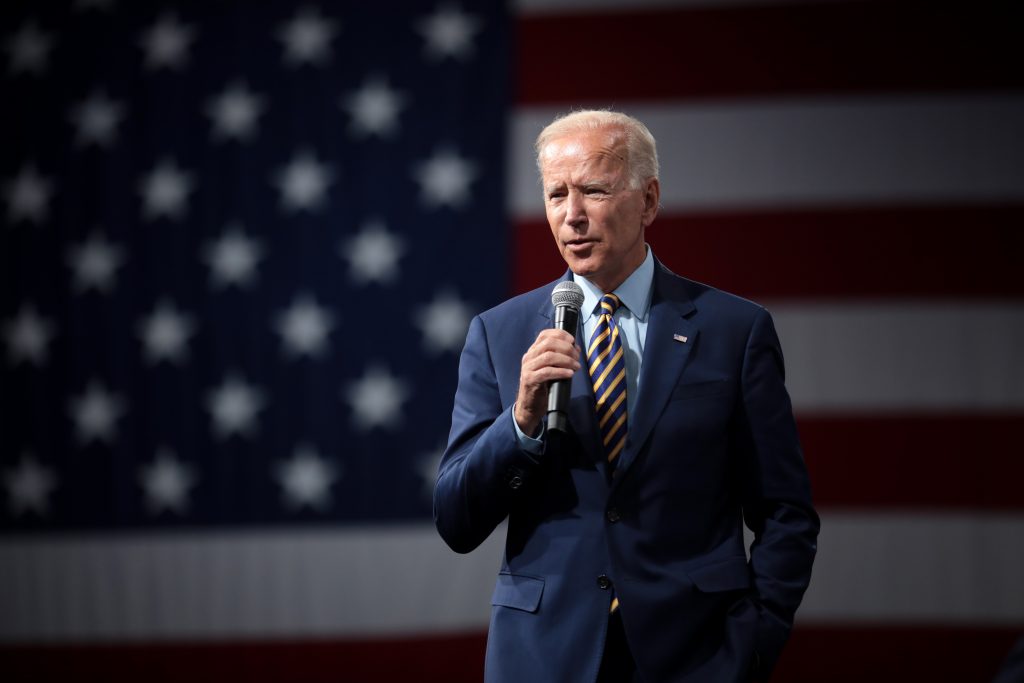President Biden’s proclamation in Atlanta on 11 January, 2022, that “I’m tired of being quiet!” about the “grave…threat to our democracy” was uncharacteristically blunt from a president whose first year in office has seen him be, at least in the eyes of many Progressives, far too quiet and restrained. Yet, it remains uncertain whether his impassioned remarks will be matched by action and, more pertinently, whether the president can spur an intractable Senate into action. If Biden is unable to pass voting rights legislation (which at the moment seems very possible), his credibility with the Left-wing and indeed his reputation for dealing effectively with the legislature will suffer considerably. If, however, he is able to shepherd the legislation through Congress, this could provide the opportunity to revitalise his presidency.
The backdrop of President Biden’s focus on voting rights is a harrowing one. Predictions of an imminent civil war are excessive – unlike in 1861, the United States’ present divisions do not affect its society’s basic economic structure, and disharmony is sown at an individual or community level, not a State level – yet divisions within the US are undoubtedly serious. The 2020 presidential election was the most scrutinised American election in history, and yet over half of Republicans consider its confirmed loser to be the true president. In the past nine months, nineteen Republican-led US States have passed voting restrictions to guarantee election integrity, based on the implicit presumption that the 2020 election was illegitimate. These restrictions range from the well-supported – such as photo ID requirements, which a Monmouth University poll show 80% of Americans support – to the deliberately obstructive, notably Georgia’s ban on providing food and drinks to queueing voters. Democrats argue that these restrictions constitute voter suppression, arguing that limiting mail-in ballots affects Democratic voters more than Republican voters. Fundamentally, all of these target an electoral system that has proven efficient and fair. In addition to this, both parties have used gerrymandering – that is, when the partisan State government re-draws congressional districts to benefit one party. Whilst hardly a new phenomenon, this has had an appreciable impact on whether voters as a whole are fairly represented. Finally, there is the possibility of manipulating the result of a presidential election, which was averted in 2020 principally because of the integrity of election officials rather than the safeguards inherent within the system.
President Biden has responded to such concerns with two pieces of proposed legislation: the John Lewis Voting Rights Advancement Act, and the Freedom to Vote Act. The latter is more expansive, reversing not just alleged voter suppression legislation but also other issues including gerrymandering. Several political commentators have suggested reforming an older law, the 1887 Electoral Count Act, to safeguard the electoral process, for which even the Republican Senate Minority Leader Mitch McConnell has expressed potential support.
Yet, the passage of these bills is fraught with difficulties. Progressives are concerned that changes to the Electoral Count Act, with no effect on voting restriction laws, would cause other legislation to lose momentum. Moreover, the reality that the appearance of change is often as important in politics as the change itself means that far more political credit will be gained from passing a substantial bill overriding various States’ restrictions than a bill altering an arcane and poorly understood procedure.
Both of Biden’s bills face significant hurdles. The Senate has a procedural mechanism known as the filibuster, which allows 40 of the 100 Senators to block the passage of most bills, the intention being to include the minority party in decisions but in effect giving it a veto. Neither bill has any substantial Republican support, and thus the abolition of the filibuster (either for voting rights legislation specifically or its full abolition) is the only means of passing this legislation. The US Senate’s 50-50 tie – to be broken if necessary by the vice president – means that every Democrat must be supportive of such a move, and this constitutes Biden’s biggest hurdle. As the president himself said, this process means that America has “51 presidents” who must concur, and one in particular is proving a major stumbling block.
West Virginia’s Senator Joe Manchin – a Moderate – is his State’s only Democratic representative in Washington and the most conservative member of the Senate Democratic caucus, and he historically has followed a philosophy of bipartisan support for a bill as a prerequisite of his support. Consequently, Manchin has vetoed numerous major parts of Biden’s legislation, including his signature Build Back Better economic bill. Whilst heavily criticised by many Democrats, Manchin has been consistent in his demands and honourable in his intentions: in addition to ensuring bipartisanship in the legislative process, Manchin believes that abolition of the filibuster for voting rights legislation would open the door for Republicans to impose nationwide voting restrictions when they regain Congress, as is likely in the 2022 November mid-terms. Manchin is also not the only moderate Democrat to exercise this effective veto, though it appears likely that where he goes, others will follow.
Yet, whilst Manchin may seem like an insurmountable obstacle, the president may still have a window of opportunity: whereas Biden’s economic measures were not in keeping with Manchin’s fiscal restraint, the Senator in principle supports voting rights legislation and so could be persuaded to vote for the bills if attempts at bipartisan compromise appear to have been exhausted. Moreover, the filibuster could be modified rather than abolished altogether, which might provide a means of persuading Manchin to support it without compromising his principles of bipartisanship.
 The coming year will be decisive in how President Biden’s administration will be remembered: Republican re-districting has virtually guaranteed them a majority in the House of Representatives after the 2022 mid-term elections, and they may well regain control of the Senate as well. Therefore, the president has only a year to pass his various policies before he loses control of Congress, which thereafter will block his legislation, as it did President Obama’s. If Biden successfully passes these popular voting rights bills and presides over an improvement in economic conditions, it is possible that his chance of an unexpected Democratic victory in the mid-term elections will grow, but this remains very unlikely as incumbent presidents typically suffer from voters expressing their general discontent at this stage. If Biden fails to pass voting rights legislation, his presidency and reputation will suffer considerably. This will be taken as his inability to manage Congress – and thus lessen his chances of securing a second term – and, at a more existential level, as his failure to use the opportunity available to prevent further division and democratic backsliding. Yet, Biden has a substantial opportunity associated with this voting rights legislation. Many Progressives are growing frustrated with the inefficiency of his calm and deliberative approach, with numerous activists refusing to attend his address in Atlanta. Biden faces a potential leadership challenge from the Left in 2024, which would likely be prevented by successfully passing the key Progressive priority of voting rights reform. Biden has limited time to enact this important legislation and is facing a difficult political landscape. How he uses this time may well define his presidency.
The coming year will be decisive in how President Biden’s administration will be remembered: Republican re-districting has virtually guaranteed them a majority in the House of Representatives after the 2022 mid-term elections, and they may well regain control of the Senate as well. Therefore, the president has only a year to pass his various policies before he loses control of Congress, which thereafter will block his legislation, as it did President Obama’s. If Biden successfully passes these popular voting rights bills and presides over an improvement in economic conditions, it is possible that his chance of an unexpected Democratic victory in the mid-term elections will grow, but this remains very unlikely as incumbent presidents typically suffer from voters expressing their general discontent at this stage. If Biden fails to pass voting rights legislation, his presidency and reputation will suffer considerably. This will be taken as his inability to manage Congress – and thus lessen his chances of securing a second term – and, at a more existential level, as his failure to use the opportunity available to prevent further division and democratic backsliding. Yet, Biden has a substantial opportunity associated with this voting rights legislation. Many Progressives are growing frustrated with the inefficiency of his calm and deliberative approach, with numerous activists refusing to attend his address in Atlanta. Biden faces a potential leadership challenge from the Left in 2024, which would likely be prevented by successfully passing the key Progressive priority of voting rights reform. Biden has limited time to enact this important legislation and is facing a difficult political landscape. How he uses this time may well define his presidency.
Featured Image: Phil Roeder through Flickr with license
Article Image 1: Gage Skidmore through Flickr with license
Article Image 2: Governor Earl Ray Tomblin through Flickr with license
